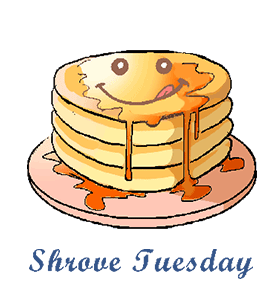Shrove Tuesday
Shrove Tuesday Quick Facts in the EU
| AKA Name | Pancake Tuesday, Pancake day, Mardi Gras, Fat Tuesday |
|---|---|
| HashtagsCompiled on | #ShroveTuesday |
| Related Hashtags | #Pancakes |
| 2026 Date | 17 February 2026 |
| 2027 Date | 9 February 2027 |
2026 Holidays & Dates - EU
| EU Country Common Holidays | ||
| EU Country National Holidays | ||
| Christian Holidays |
› | ||
